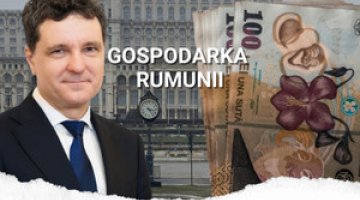Romania: the government is being reshuffled in an attempt to avoid electoral defeat
Emil Boc stepped down as prime minister of Romania on 6 February. The official reason for his decision was the desire to reduce social tension resulting from budget cuts and the significant impoverishment of society. The escalation of dissatisfaction among the Romanian public has been expressed in street protests, which have been ongoing since mid-January. Prime Minister Boc’s resignation marks the beginning of a reshuffle in the coalition government closely linked to President Traian Băsescu, formed by the centre-right Democratic Liberal Party (PDL), the Democratic Union of Hungarians in Romania (UDMR) and the centre-left National Union for the Progress of Romania (UNPR). President Băsescu, following consultations with the groupings represented in the parliament, entrusted Mihai Răzvan Ungureanu, the head of the Foreign Intelligence Service and former foreign minister, with the task of forming the government. In the cabinet he forms, all the ministers representing UDMR and UNPR will maintain their positions, while all the ministers representing PDL will be replaced. The vote of confidence in the government led by Ungureanu is to be held by 16 February at the latest. Until the new cabinet is approved, the function of the prime minister will be held by Minister of Justice Cătălin Predoiu.
- The main reason behind this thorough reshuffle in the government is the coalition’s desire to regain public support. Boc is commonly identified with the socially painful policy of budget cuts. Had he not resigned, this would have adversely affected the image of PDL and posed the risk of a crushing defeat for the party in the elections this year: local (in June) and parliamentary (in November). According to polls, at present the centre-right PDL may expect support at a level of approximately 11%. This level is more than three times lower than four years ago, when a PDL led by Prime Minister Boc assumed power. Low public support deepened the tension inside the PDL, whose representatives have openly criticised the prime minister over the past month.
- The designation of Mihai Răzvan Ungureanu as prime minister means that President Băsescu will still have a direct influence on the government. Since Ungureanu was the foreign minister in the liberal government led by Călin Popescu-Tăriceanu (2004–2007), he is believed to be a close and trusted associate of the president. At the same time, he does not have strong support inside the PDL but is perceived as competent government official. His nomination fits in with Băsescu’s policy aimed at weakening the major leaders in the PDL, which is an effect of his ambition to be the only leader in this ruling party.
- The parliament is likely to back the Ungureanu cabinet soon, since the government coalition has a small but stable majority in the Chamber of Deputies and the Senate. The parties which form the government coalition fear an early parliamentary election since their support levels are at a record low. In turn, the opposition, which consist of of the Social Democratic Party (PSD), the National Liberal Party (PNL) and the Conservative Party (PC), are calling for an early election. Actions taken by the opposition – including votes of no confidence announced on numerous occasions, the boycotting of parliamentary work, or attempts at breaking up the government coalition – have failed to bring about the expected result. However, an early parliamentary election cannot be ruled out if one of the government coalition parties gains a good result in the local elections and wishes to repeat this success quickly at the national level. At the same time, the government’s cost-cutting policy is likely to be modified in order to improve the support levels of the coalition parties.





